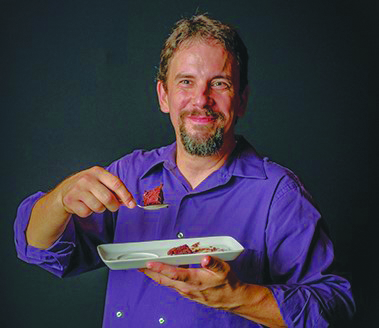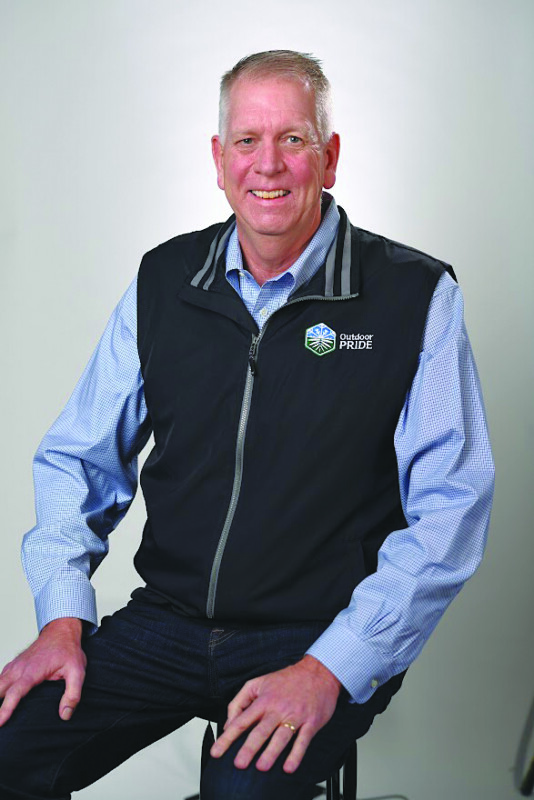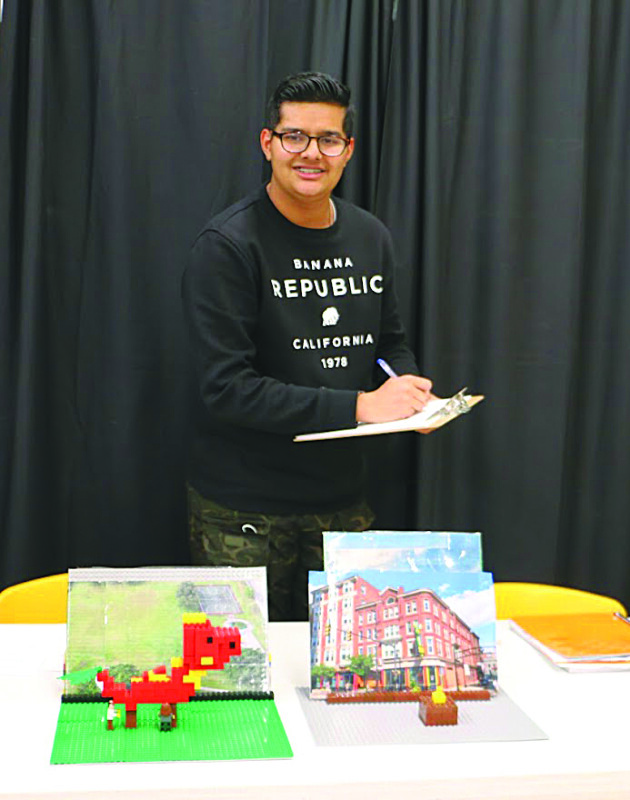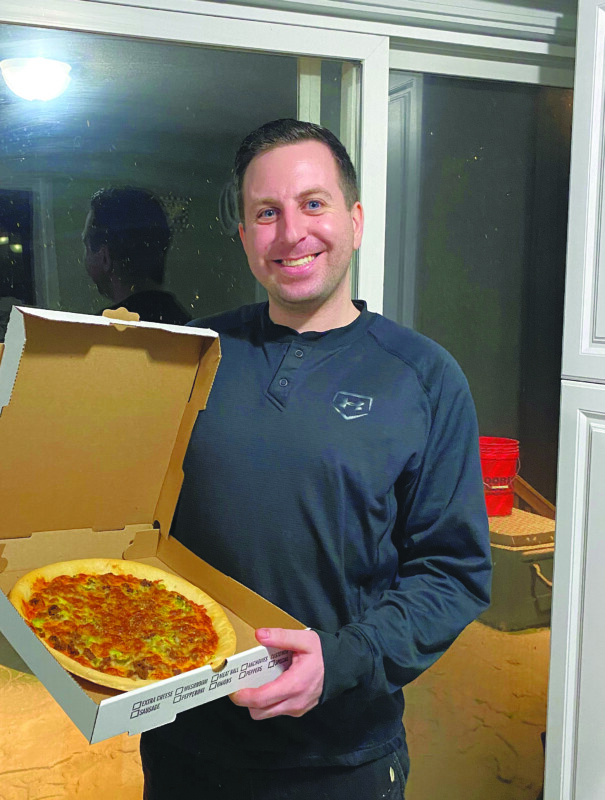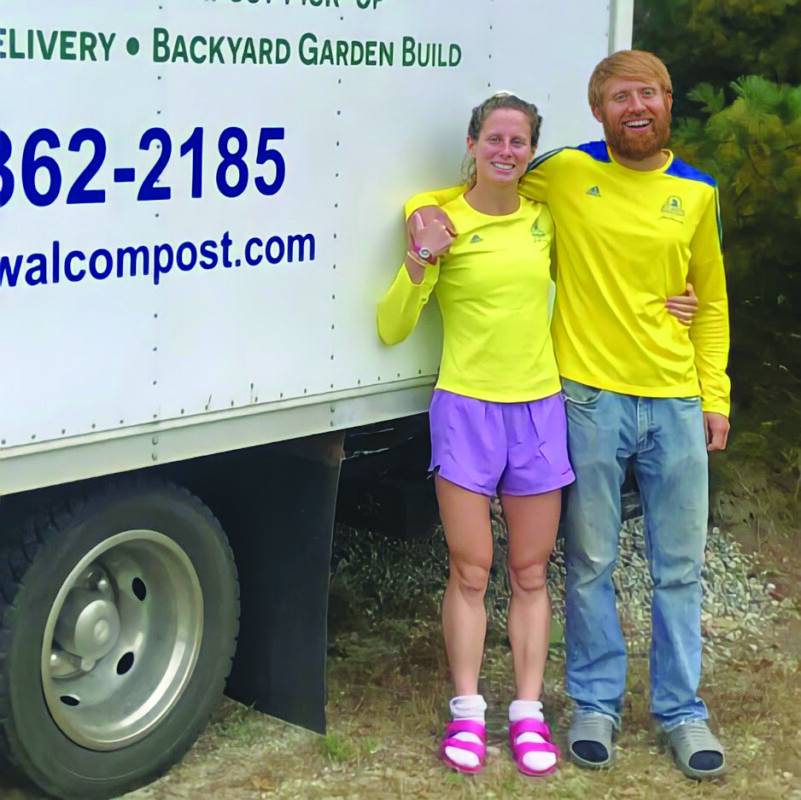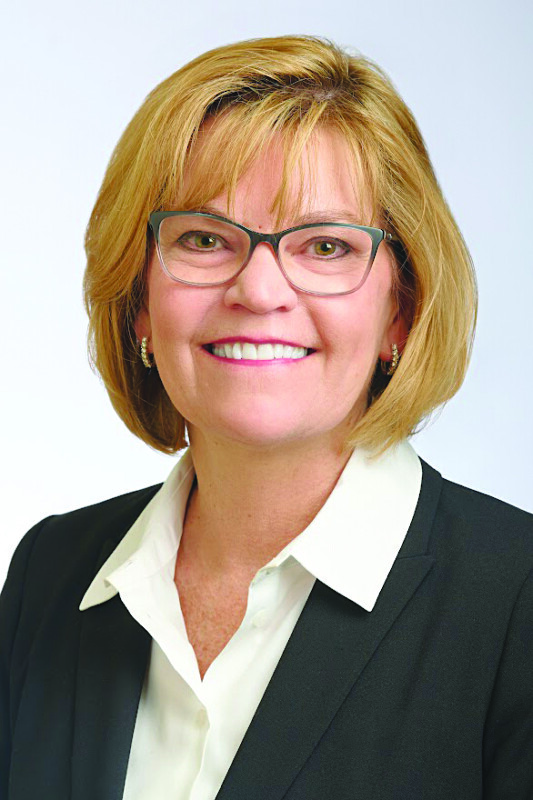Bradley Labarre of Manchester is the new executive chef and program manager of the Recipe for Success culinary job training program at the New Hampshire Food Bank (700 E. Industrial Park Drive, Manchester, 669-9725, nhfoodbank.org), having assumed the role in early January. The free eight-week program helps people suffering financial hardships gain work in the food service industry in the state — students learn various skills such as nutrition, proper use of kitchen instruments and equipment, safe food handling and meal presentation. Labarre’s role with the Food Bank also involves coordinating food donations and managing its regular inventory of products, and he’s currently working on getting the Recipe for Success program accredited through the American Culinary Federation. A Queen City native, he’s been involved with the Food Bank as a volunteer for more than eight years, including as a participant in its annual Steel Chef Challenge.
What is your must-have kitchen item?
A very sharp knife.
What would you have for your last meal?
A perfect bowl of mushroom risotto, topped with an unctuous slab of nicely seared foie gras. … Of course, it would have to be followed by something sweet, so perhaps a nice slice of wild blueberry cheesecake or Blake’s brand Moose Tracks ice cream.
What is your favorite local restaurant?
At the top of my list right now is Greenleaf in Milford, with chef Chris Viaud. They are totally killing it over there. Every time we go there, our heads are exploding. … We love that place, and we love Chris too. He’s a super, super nice guy.
What celebrity would you like to cook for?
[Chefs] Alice Waters, Peter Hoffman or Dan Barber. I’ve been inspired by their farm-to-fork approach with food for years. … Cooking for any one of them would not only be an honor, but it would teach me so much about my deep-seated approach to cooking.
What is your favorite thing that you’ve ever cooked for the NH Food Bank?
One that really sticks out to me was the first meal we ever made for the Steel Chef challenge back in 2016, which was a beef tenderloin. Although it wasn’t the most difficult thing I ever made, it was one of the most memorable. Not only did I get to do this with my then future wife and a few friends, but this plate of food made such a difference in so many people’s lives.
What is the biggest food trend in New Hampshire right now?
Plant-based cooking. I’m noticing that more and more chefs are focusing more of their energy on plant-based foods made with care.
What is your favorite thing to cook at home?
Anything in my outdoor wood-fired oven. Specifically, though, I love a crisp, airy pizza topped with a few slices of fresh mozzarella, some spicy arugula and thinly sliced prosciutto. You can’t beat it. … [The oven] is handmade in Portugal and it weighs 1,300 pounds. I actually had to have a crane put it in my yard.
Wild mushroom risotto
From the kitchen of Executive Chef Bradley Labarre of the New Hampshire Food Bank
1 pound wild mushrooms
8 Tablespoons butter
2 small shallots, minced
4 garlic cloves, minced
2 fresh thyme sprigs
½ teaspoon salt
½ teaspoon freshly ground pepper
¾ cup dry white wine
1 Tablespoon lemon juice
5 cups chicken or vegetable stock
1½ cups arborio rice
1 cup heavy cream
1 cup freshly grated Parmesan cheese
Fresh parsley, minced (optional)
Warm broth over low heat in a small saucepan. In a heavy skillet, melt half of the butter over medium heat. Add mushrooms and shallots and saute until tender, about eight minutes. Add garlic, thyme sprigs, salt and pepper and stir for an additional minute. Remove mushroom mixture from pan and set aside. Add remaining butter to pan over medium heat. Once melted, add rice and stir until rice begins to look translucent. Add dry white wine and lemon juice and bring to a simmer, stirring constantly until the liquid is absorbed. Add mushroom stock or one cup of vegetable broth and stir until almost all of the broth is absorbed. Continue adding the broth one cup at a time and stir until the liquid is almost absorbed. Add mushroom mixture into the rice and stir to combine. Gently stir in the heavy cream and Parmesan cheese and cook for an additional five minutes on low heat. Transfer risotto to a serving bowl and top with freshly ground pepper, shaved Parmesan and fresh parsley if desired.
Featured photo: Bradley Labarre. Photo by Bruce Luetters of 3Sixty Photography.

